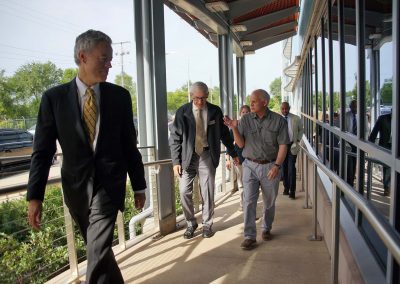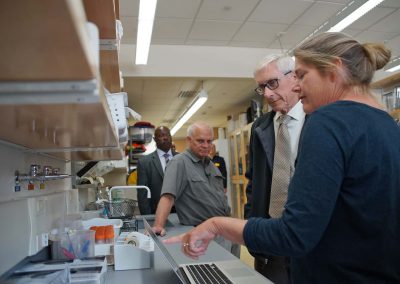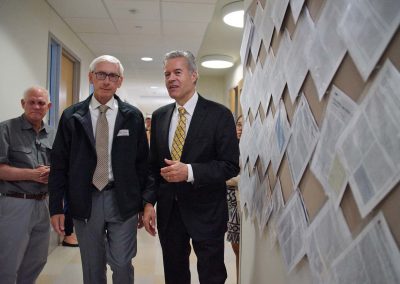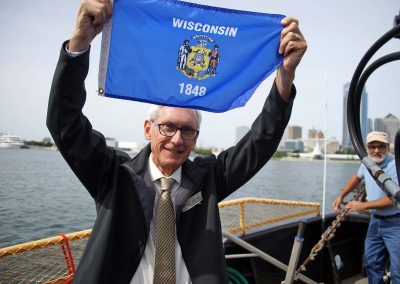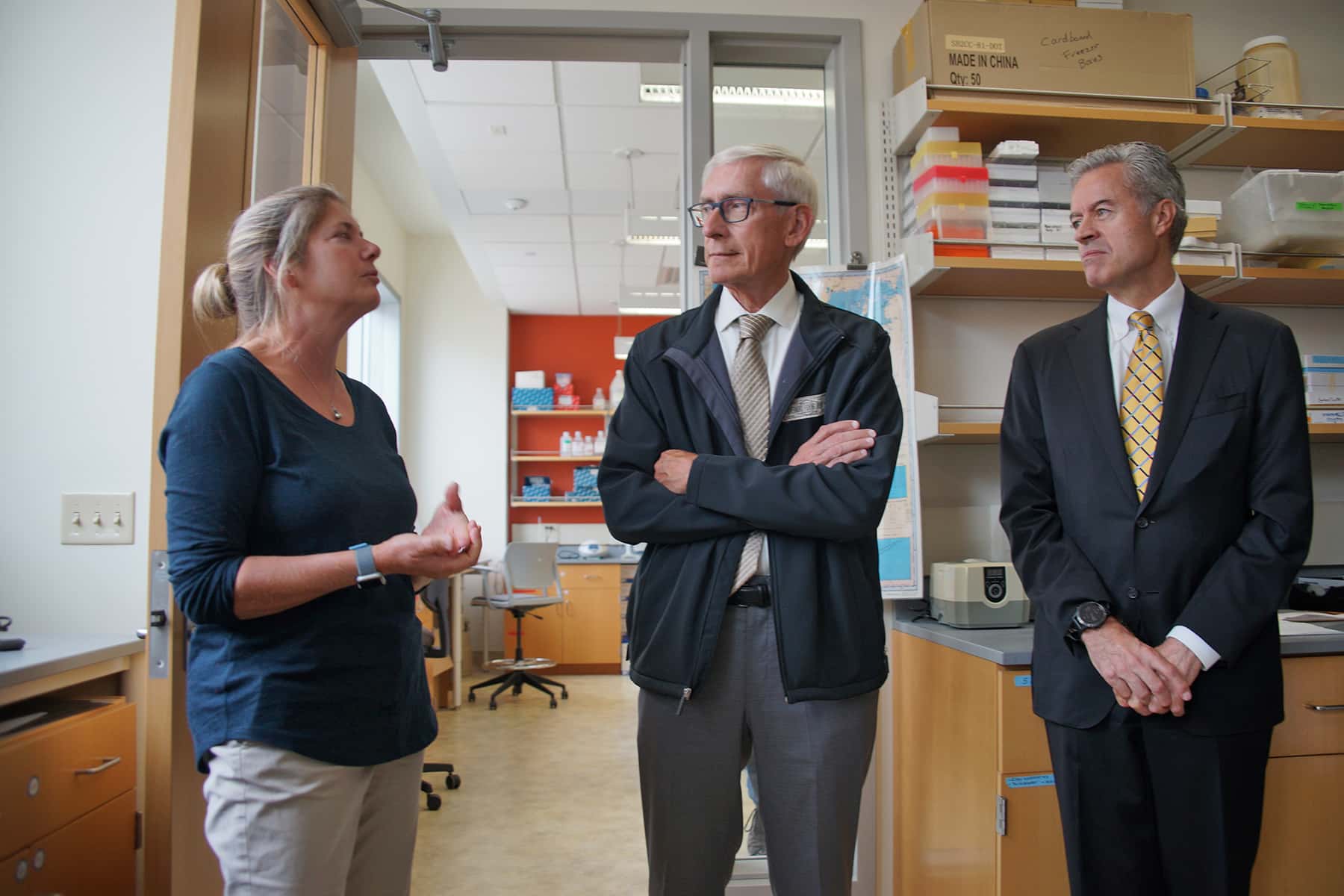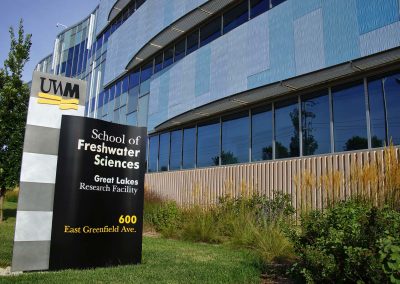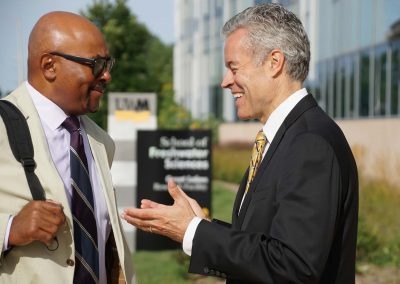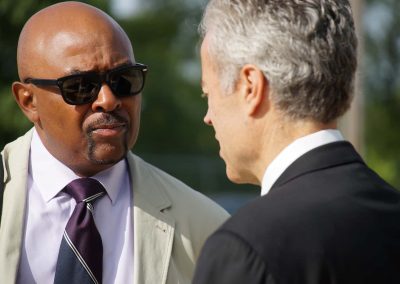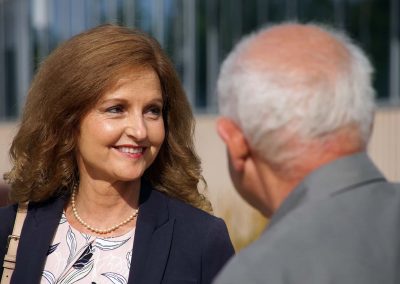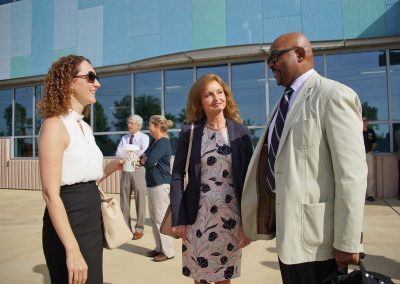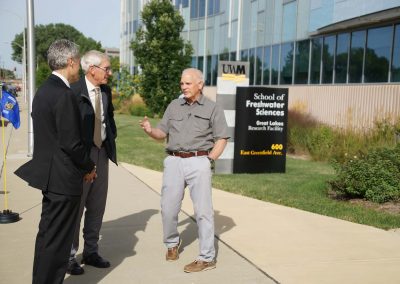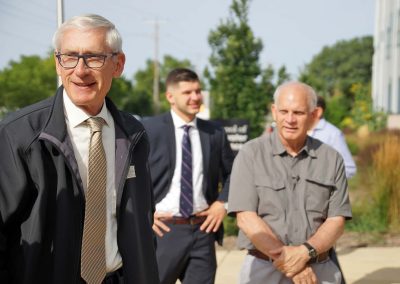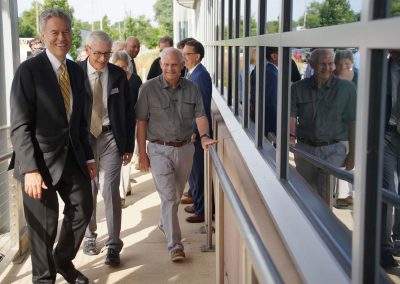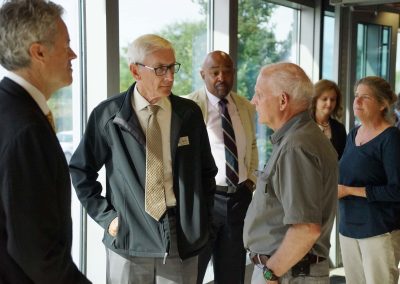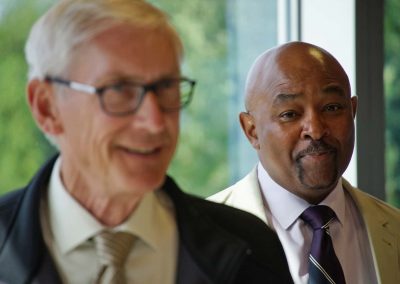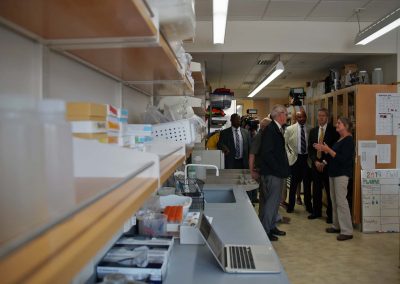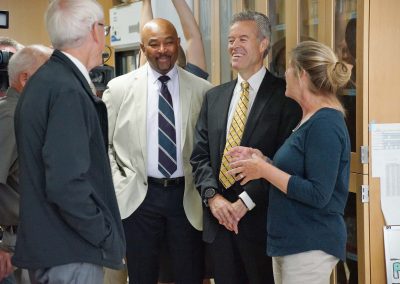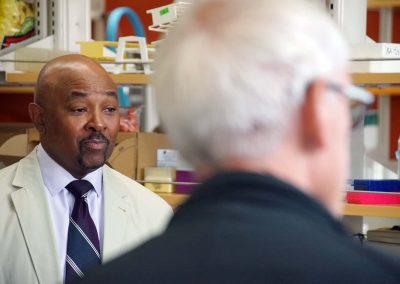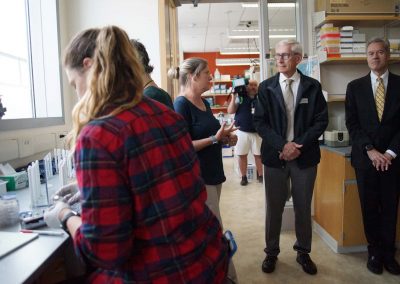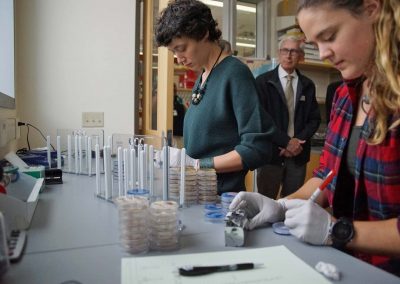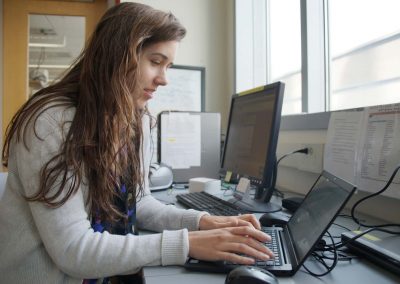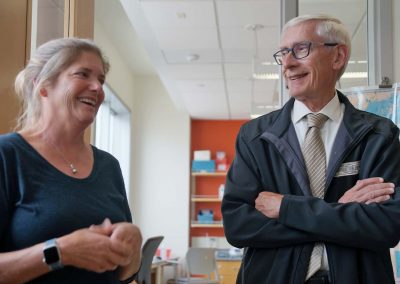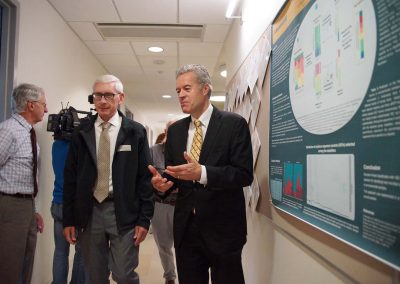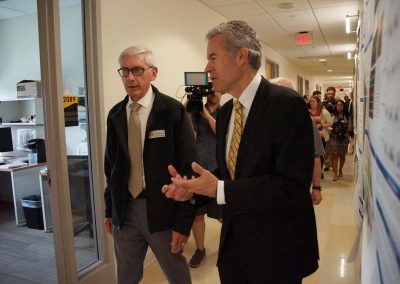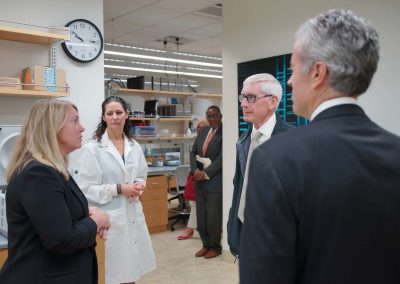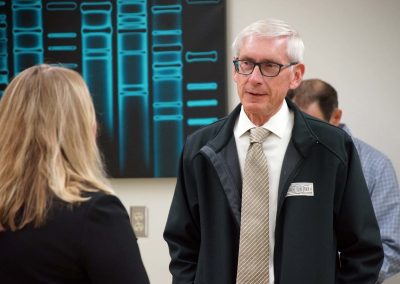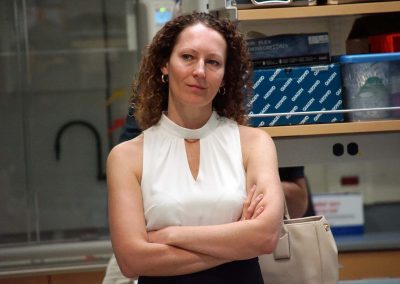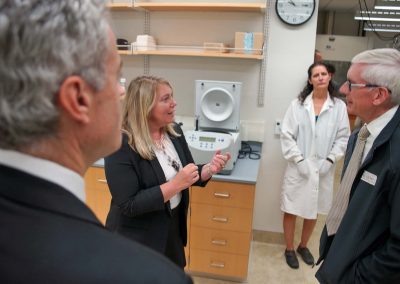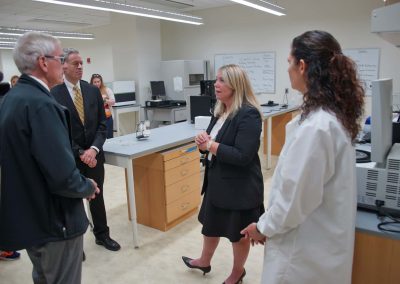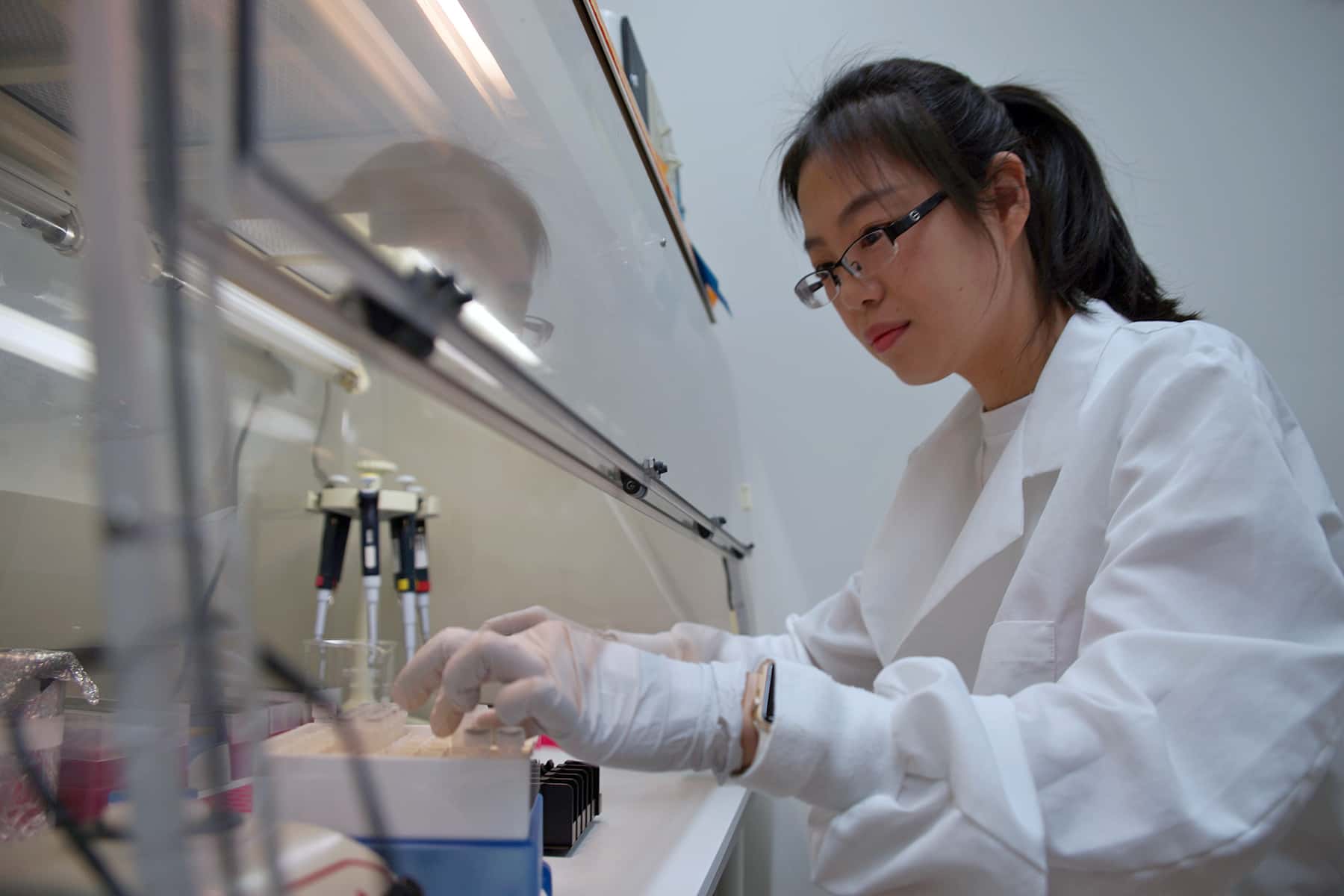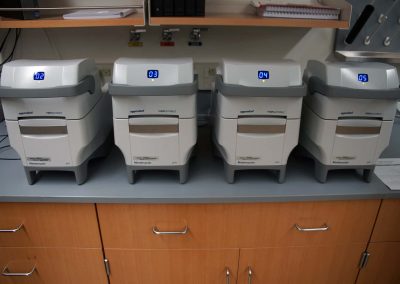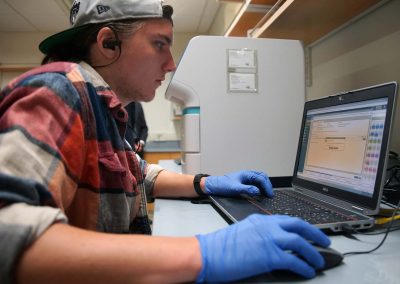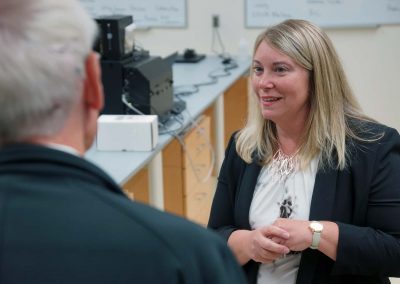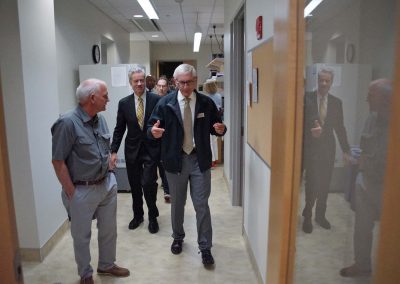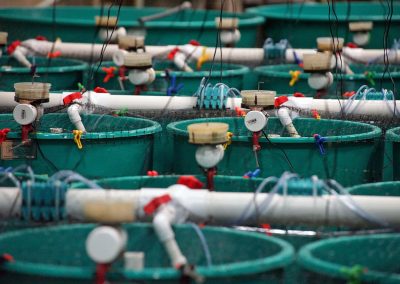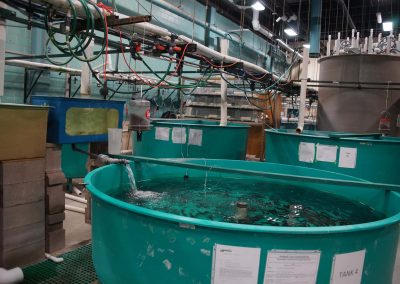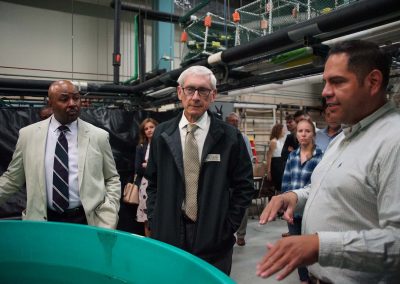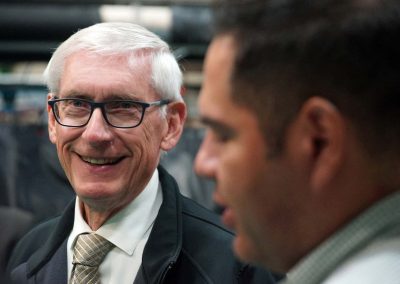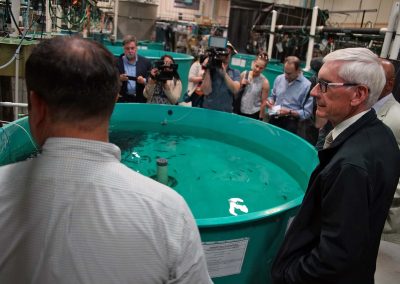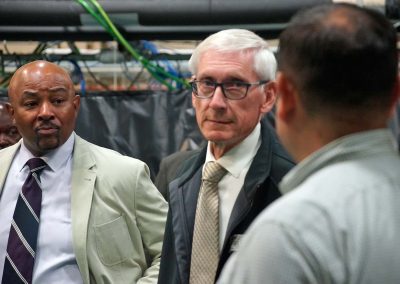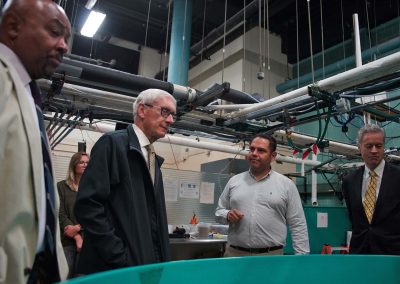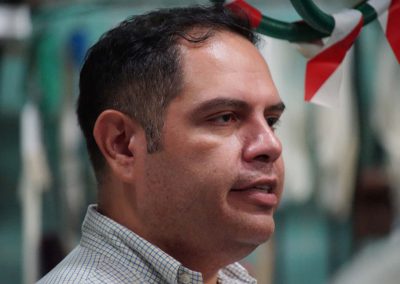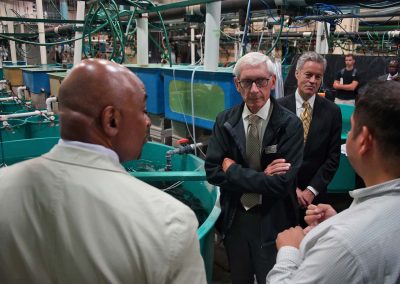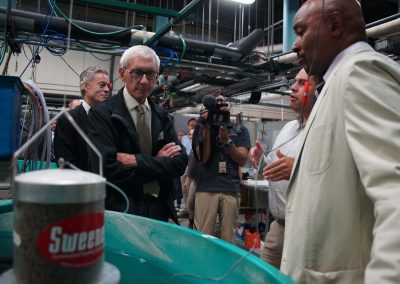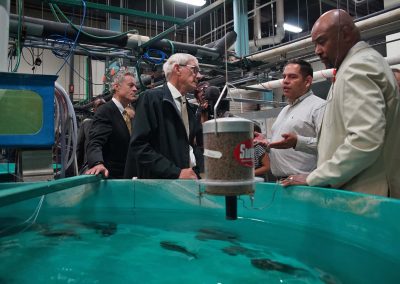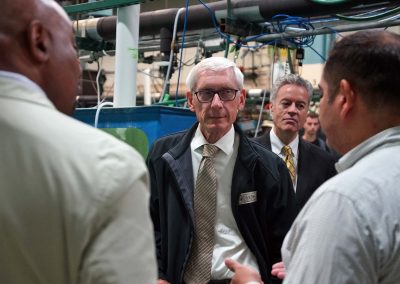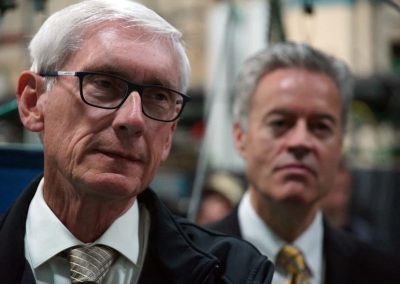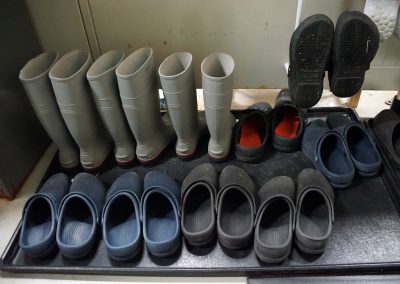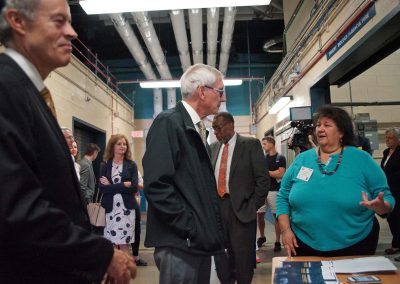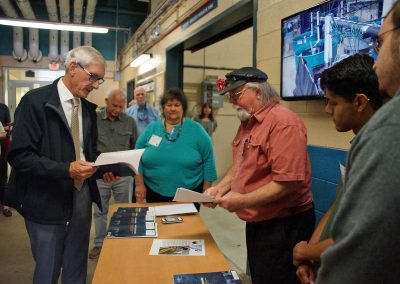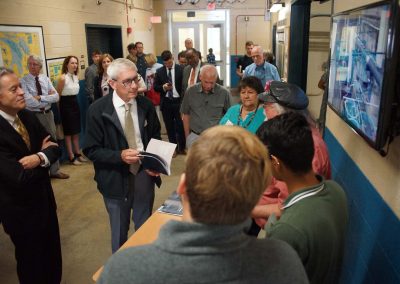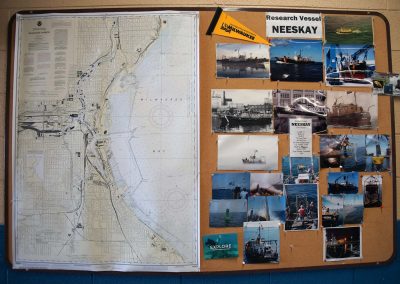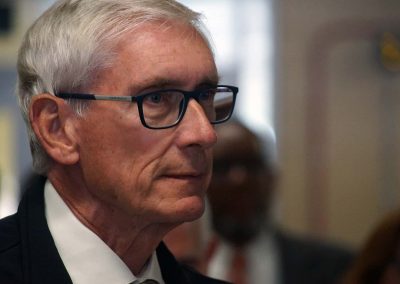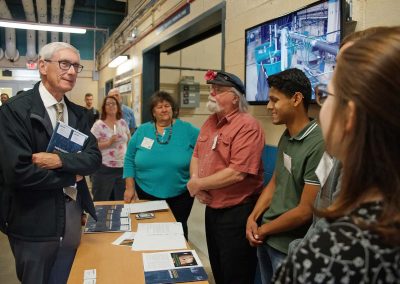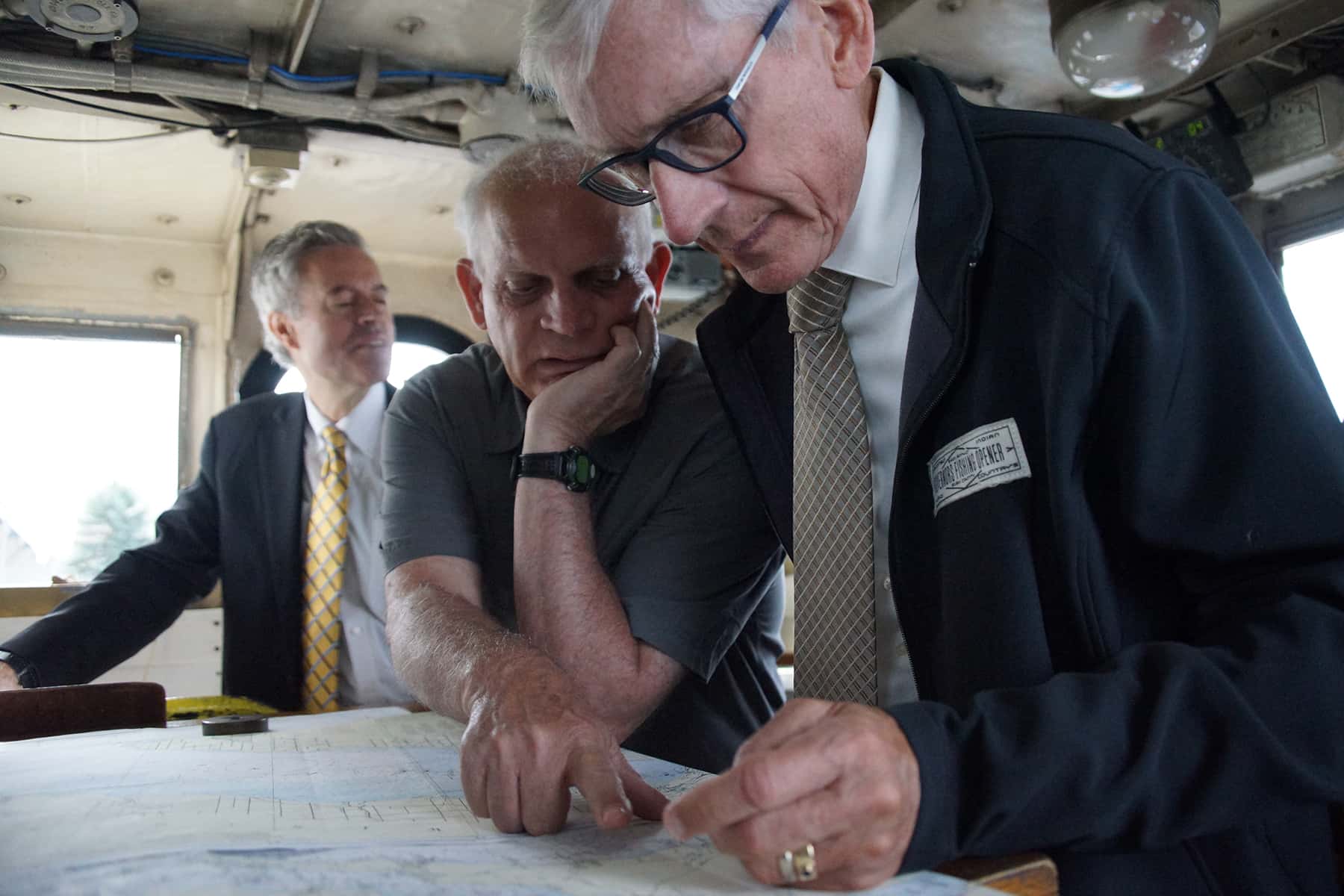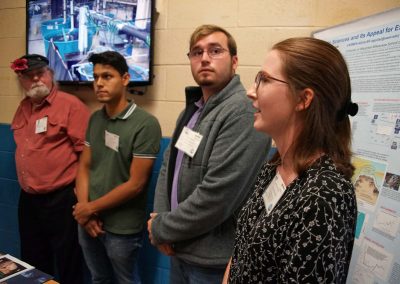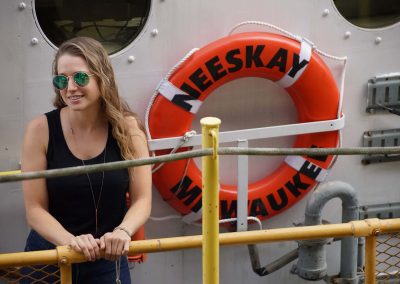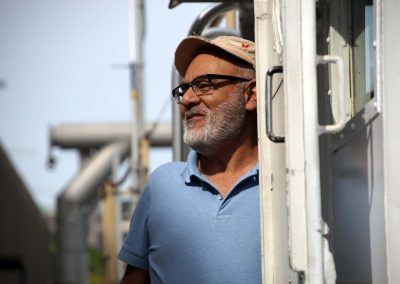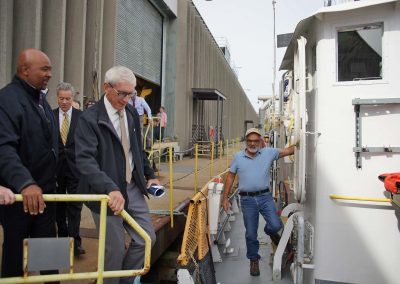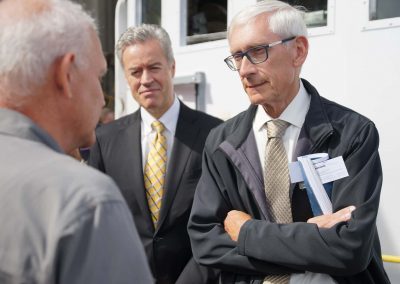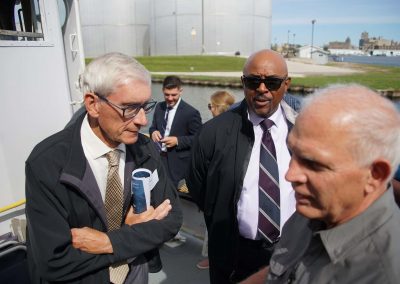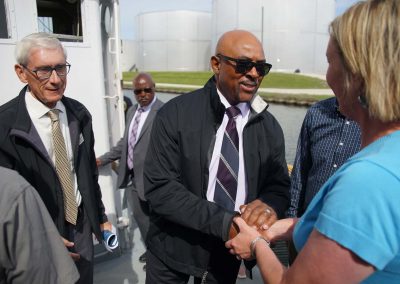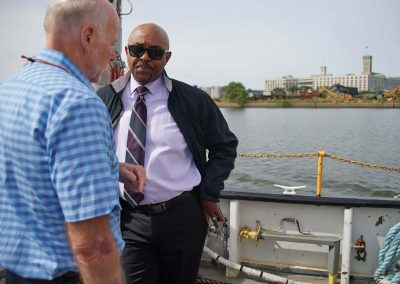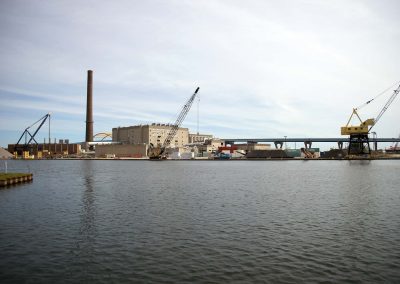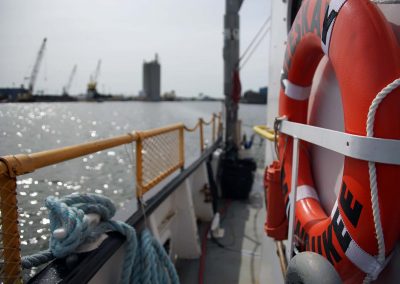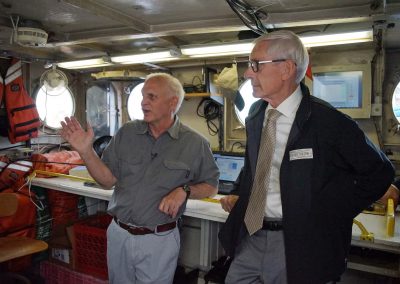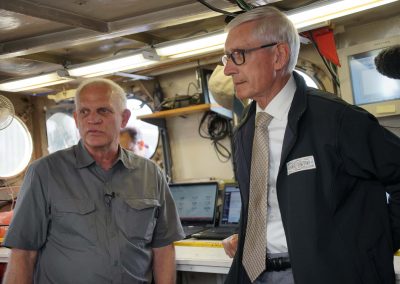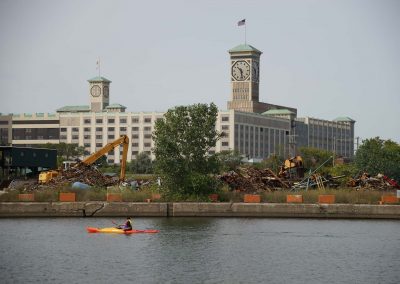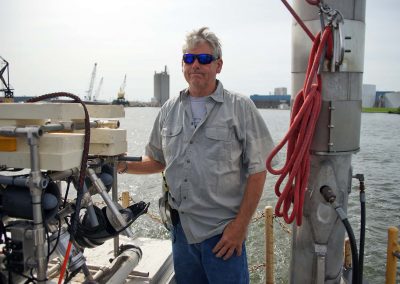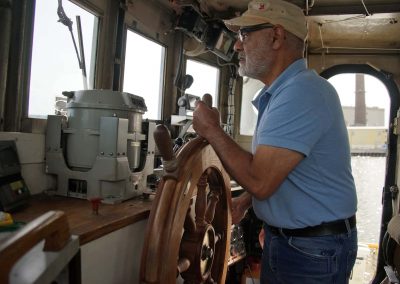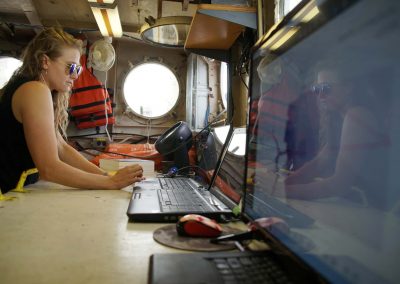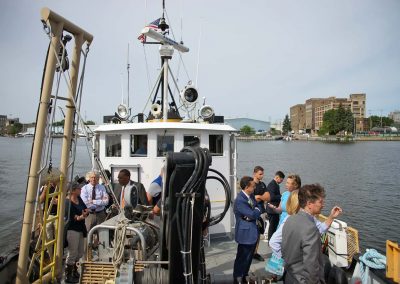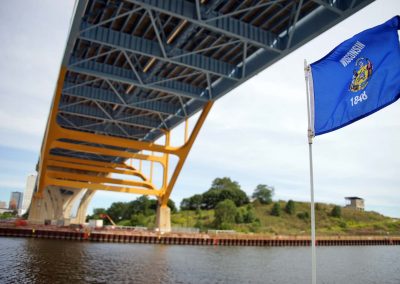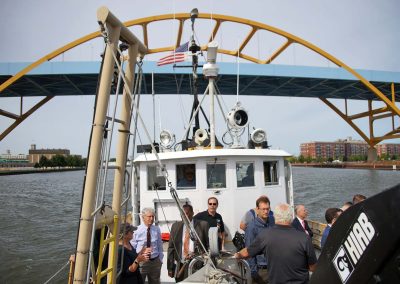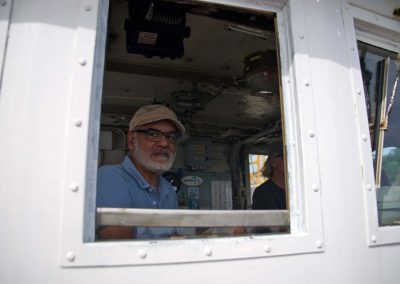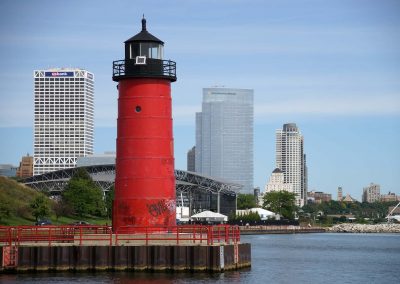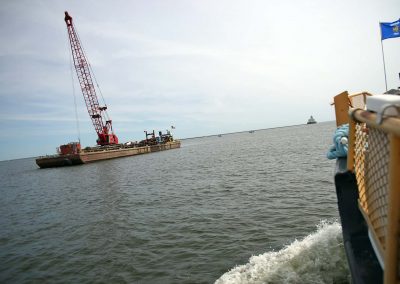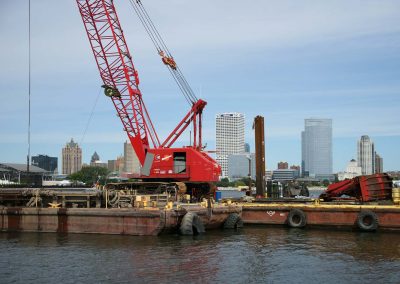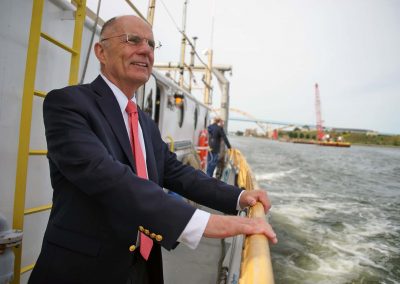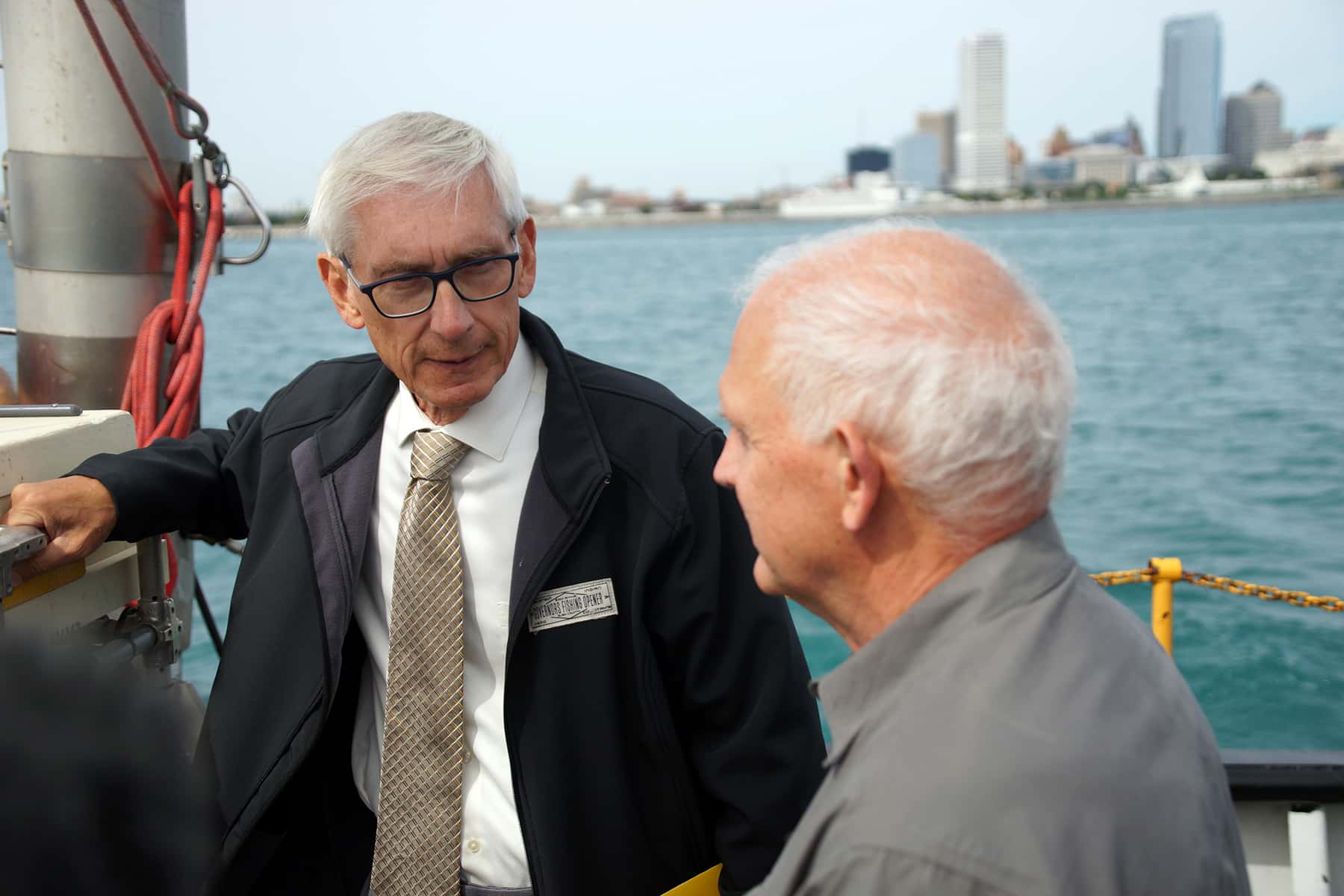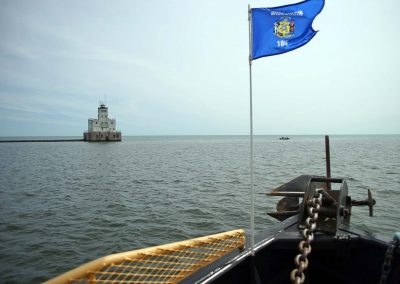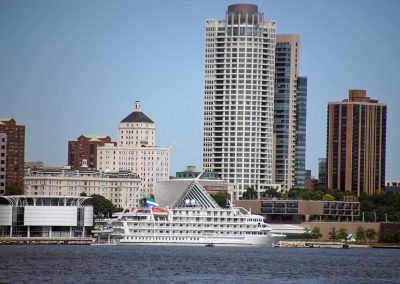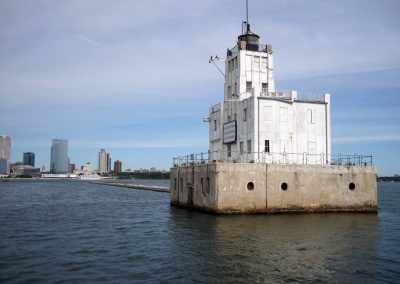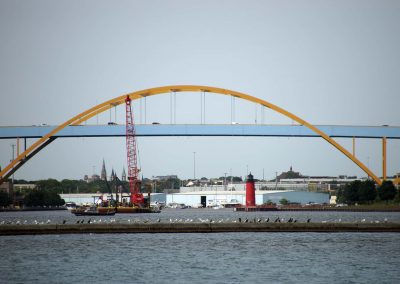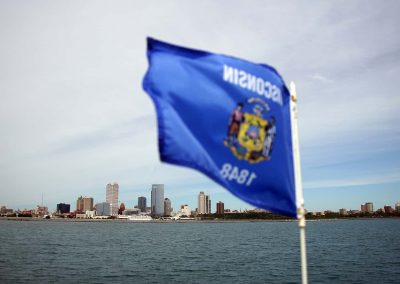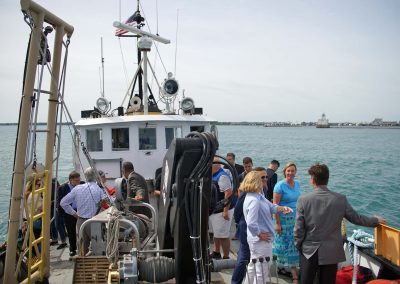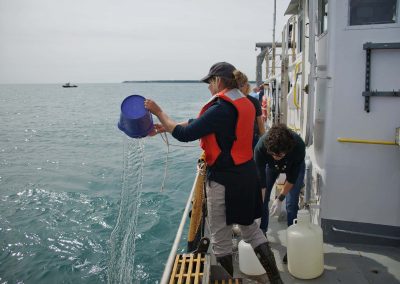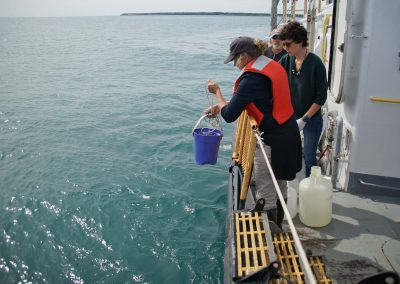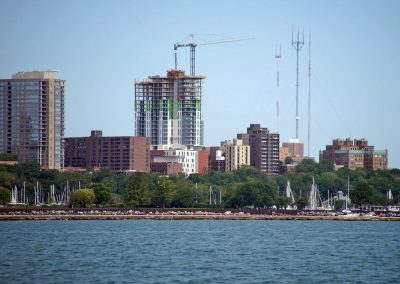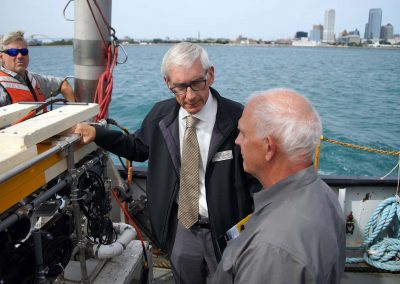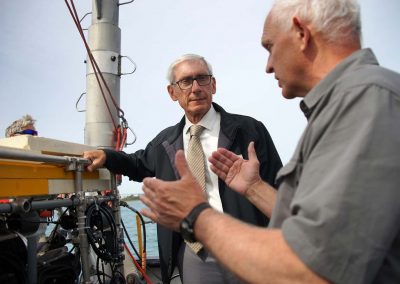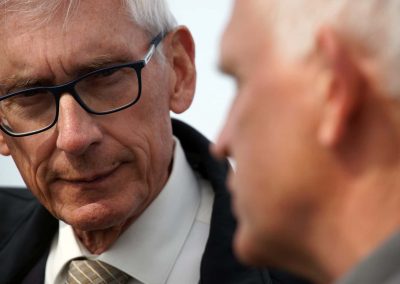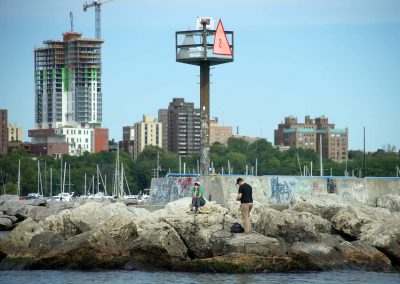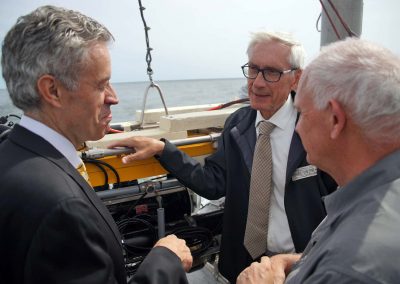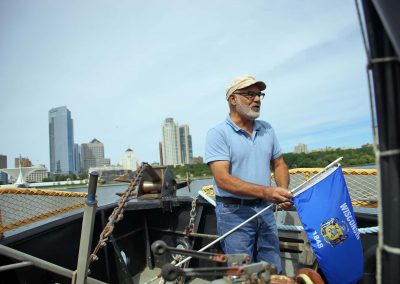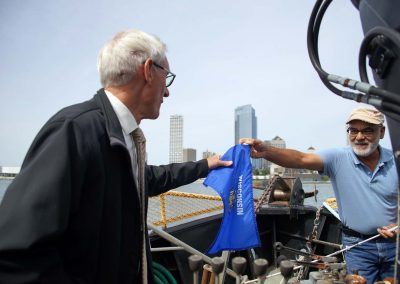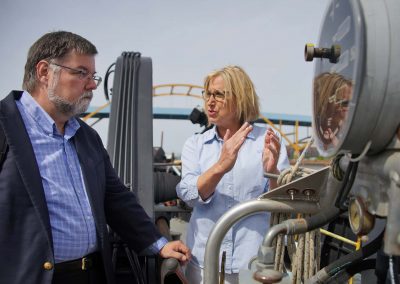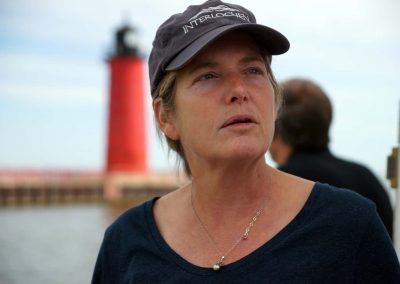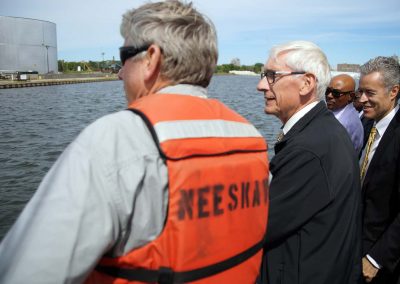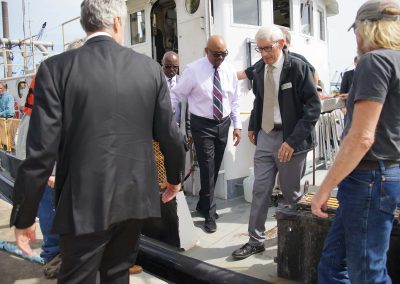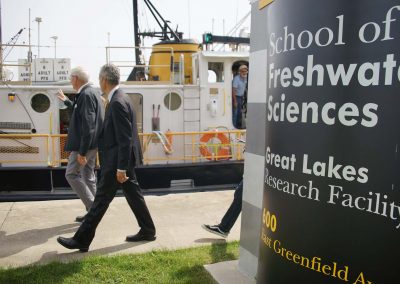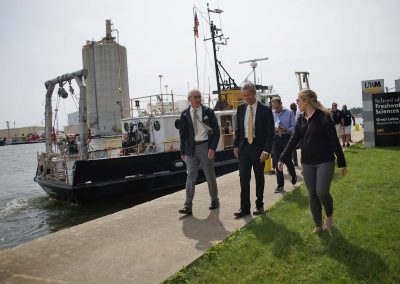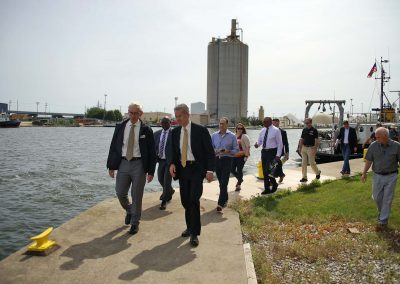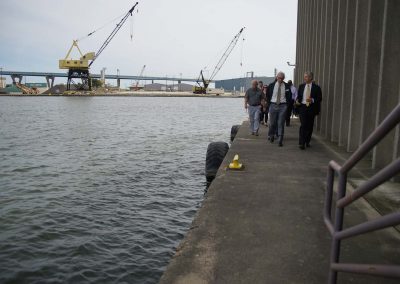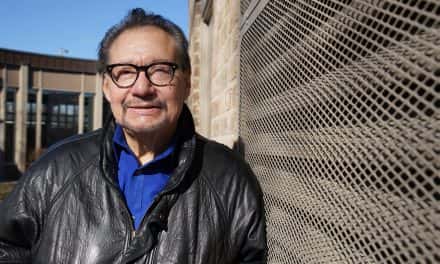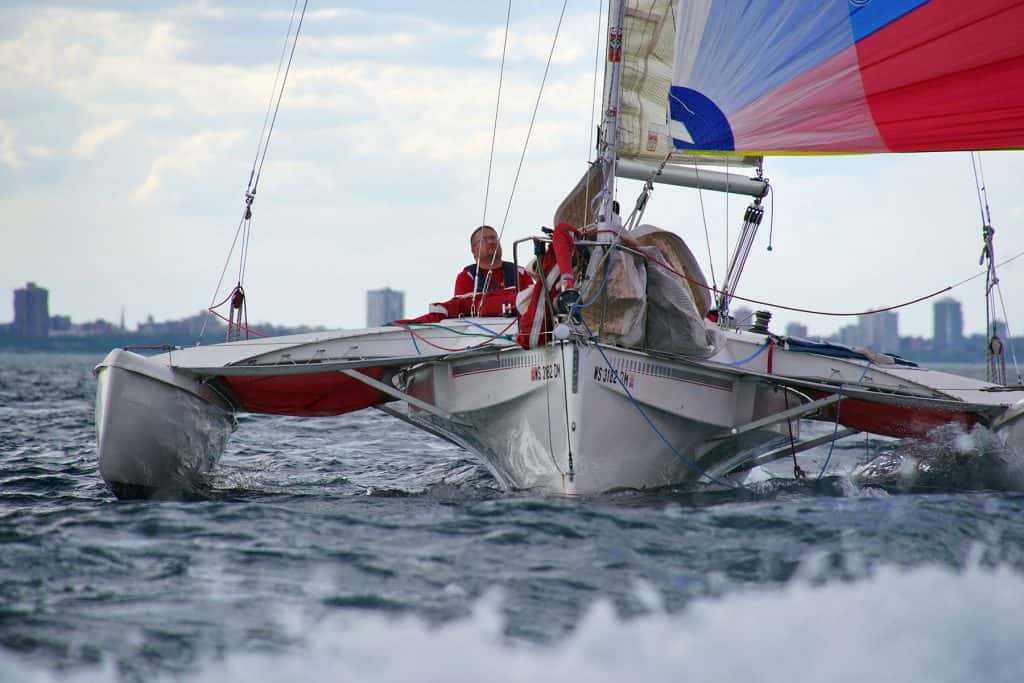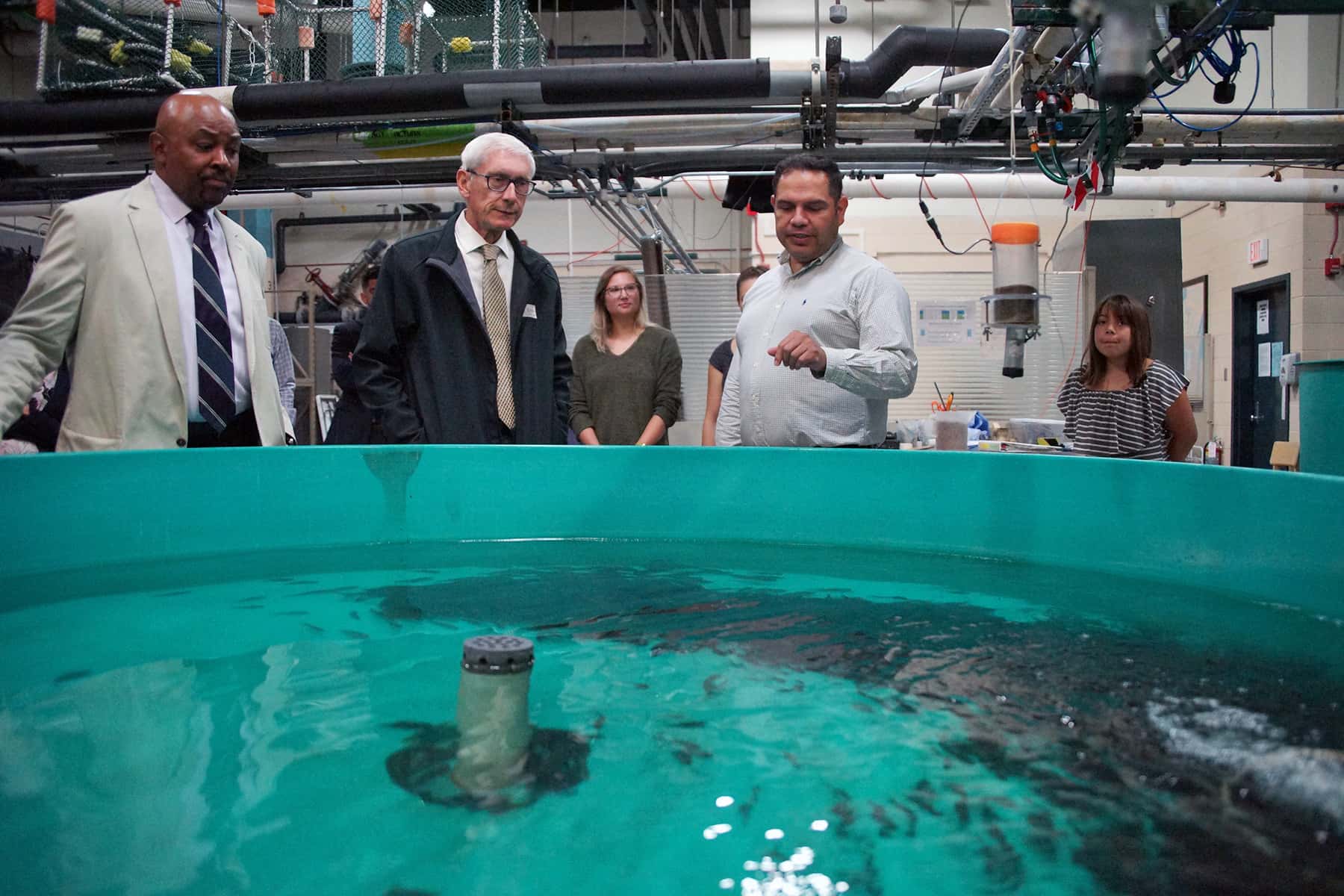
Governor Tony Evers visited the University of Wisconsin-Milwaukee’s (UWM) School of Freshwater Sciences to learn more about the school’s groundbreaking research and the new Freshwater Collaborative on August 30.
The governor met with UWM experts in the fields of micro-contaminants, genomics, freshwater aquatic species, and aquaculture before touring Lake Michigan on the school’s research vessel Neeskay.
“We have to preserve and protect our water resources, and we have to connect the dots to be successful,” Governor Evers said. “From our farmers relying on clean water for crops and livestock to our outdoor recreation industry to everyday use, water is essential to our state and our economy, and that’s why the School of Freshwater Sciences and the Freshwater Collaborative are so critically important.”
The governor highlighted the creation of the Freshwater Collaborative during his visit, which creates a framework for all 13 University of Wisconsin System campuses to develop a multidisciplinary approach to both research and education, and will enable students to participate in a one-of-a-kind undergraduate program in freshwater studies. Initial funding for the program is coming from a $670,000 grant from the Wisconsin Economic Development Corporation (WEDC) and $1.4 million from the UW System.
“UW-Milwaukee is North America’s only dedicated school of freshwater science,” said Mark Mone, UWM Chancellor. “It’s a cornerstone in a movement to make Wisconsin a powerhouse in water research and industry – not just in our state but globally.”
Wisconsin has become a global thought leader in water resources, and supports more than 200 water technology businesses across the state. The new UW initiative aims to attract both researchers and investors to Wisconsin to evaluate technological changes for both study and investment. It will also leverage the state’s leadership position to increase market access.
“It is hard to imagine any endeavor more important than ensuring the availability of safe, clean freshwater,” said Val Klump, dean of UWM’s School of Freshwater Sciences. “UW schools can play a key role, in that no other institution has the tools or capacity to identify, map and solve these often complex problems. Employers are snapping up our students, and are asking us to produce more, and that is the goal – to make UW and Wisconsin the world’s leader in freshwater training and research.”
The poor quality of Lake Michigan’s water around the Green Bay are is just one example of how a local environmental problem has a negative impact on the Wisconsin economy. The problem is mostly due to phosphorus and other chemicals from agricultural runoff that have reduced oxygen levels, creating “dead zones” where fish and aquatic life cannot live.
“It is hard to imagine any endeavor more important than ensuring the availability of safe, clean freshwater,” said Val Klump, dean of UWM’s School of Freshwater Sciences. “UW schools can play a key role in the process to map and solve these complex problems. Employers are snapping up our students, and are asking us to produce more. That is the goal, to make the UW System and Wisconsin the world’s leader in freshwater training and research.”
Wisconsin is also the only state to have created a private industry group, The Water Council, to share technological advancements and best practices and to enhance collaboration.
“The water technology industry is always seeking the next generation of talent from Wisconsin’s universities but they also recognize that the development of new technologies often times comes through close collaboration with academia,” said Dean Amhaus, president and CEO of The Water Council. “It is for that reason The Water Council and its members look to extend its close working relationship with the University of Wisconsin-Milwaukee to the other UW campuses across Wisconsin.”
An analysis estimated that Wisconsin’s water workforce currently employs around 60,000, with projections that water sector jobs could triple by 2040. The collaboration’s five-year goal anticipates including 1,000 new undergraduate students studying Great Lakes water sciences and 400 new graduate research students along with 100 new faculty to support 650 new jobs. Funding for the total program cost would require $27.6 million in state support over three budget cycles.
© Photo
Lee Matz

